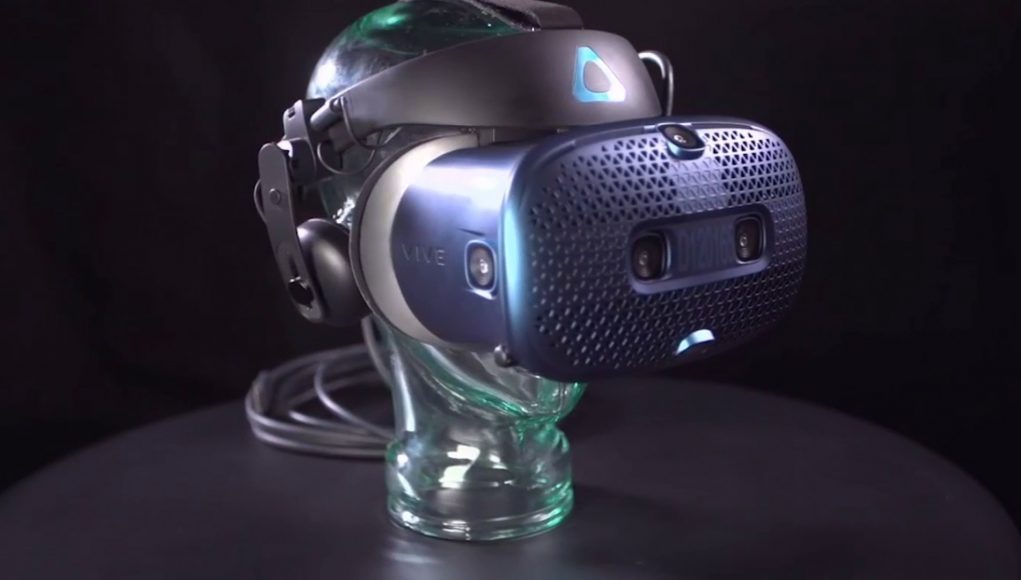HTC today unveiled a new design for Cosmos, the company’s upcoming inside-out tracked PC VR headset slated for release in Q3 2019.
HTC posted the unveiling in a video on the Vive Facebook page, mentioning the headset’s codename ‘D120165′. HTC further says they’ll be releasing specs on Cosmos next week.
We’ve seen non-working units before at Cosmos’ unveiling at CES 2019 in January, and at least visually we can tell a few things have changed in the new design.
Firstly, the headset now seems to sport six camera sensors instead of the previously shown four, something that ought to give it a wider field of view for optically tracking the system’s motion controllers.
The headset also features a faceplate that it both removable and perforated (ostensibly for ventilation). Interestingly enough, both up and downward-facing sensors are housed on the faceplate itself, which could point to the possibility of swappable modules.

While we don’t know exactly when the Vive Cosmos is set to launch (stated for Q3 2019), and at what price, it’s strange to see a redesign announced this late in the game. HTC announced earlier this month that dev kits are on the way, so it’s unclear if this or the previous design will make it into developers’ hands. It’s also already been cleared by the FCC, although these particular spec changes wouldn’t necessarily have been reflected in the FCC documentation itself.
We’re still waiting on some basic info about the company’s upcoming PC VR headset like resolution, field of view, weight, tracking details, and price. The company has also teased that it will be able to plug into a smartphone, but has yet to offer any details. Hopefully we’ll learn all of this when HTC makes their spec reveal next week.
You can watch the full two-minute video of the unveiling if you’re really into watching a headset slowly turn on a Lazy Susan.







